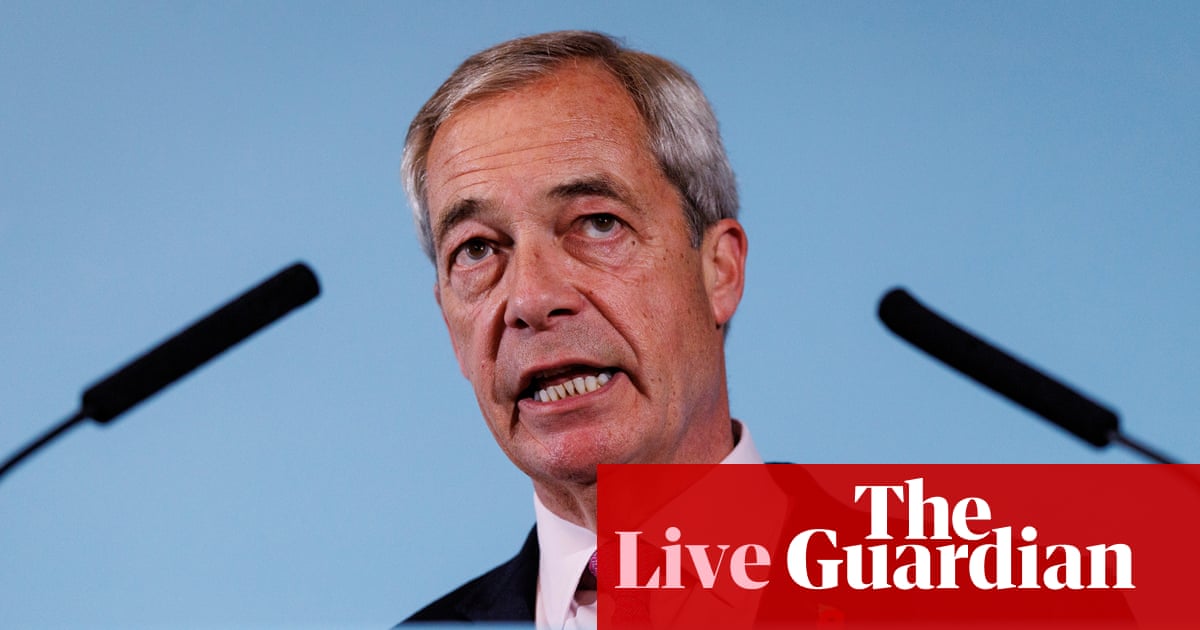
Guardian columnist
There is no way we can reduce Britain’s sense of malaise and its febrile public mood down to a simple set of problems – nor should progressives fall into the trap of assuming rightwing sentiment about asylum and immigration can be reduced to supposed bread-and-butter economic issues. But in my experience, one particular issue really does sit at the heart of the UK’s sense of bitter disaffection: social housing, and our dire lack of it.
With good reason, Keir Starmer often rhapsodises about the wonders of home ownership. But putting down a deposit and getting a mortgage remains way beyond many people’s reach, not least at the younger end of the age range. Average rents for new private tenancies, meanwhile, are about 20% more expensive than three years ago. And one stark insistence continues to haunt our politics: the housing charity Shelter’s spot-on claim that we need to build 90,000 new social homes a year to convincingly tackle a crisis that will not go away.
Whenever I am out reporting, all this is self-evident. In most cities and towns (and, it has to be said, the kind of former Labour heartlands where people are now supporting Reform), a couple of hours of street-level conversations will always bring out people’s desperate yearning for the kind of secure, dependable living arrangements that define happy lives – not least, where relevant, for their children and grandchildren. So why does it still feel like this Labour government is so painfully dragging its feet?
As the early Starmer promise of building 1.5 million new homes by the time of the next election starts to look depressingly fragile, there are rays of light: one of the legacies of Angela Rayner’s time in the cabinet is a £39bn social and affordable housing programme that ministers say will deliver at least 180,000 homes for social rent by 2035. That is progress, undoubtedly: it represents a six-fold increase on the number built in the decade to 2024. But note the inescapable meaning of those numbers: notwithstanding this country’s miserable recent policy record, the target amounts to 18,000 a year, which falls far short of the scale of the problem and the speed at which it ought to be tackled.
Given the political emergency it faces, is quicker and more thoroughgoing building really beyond the government’s reach? Given the number of Labour local authorities, could it not use the party’s on-the-ground expertise to spark a council housing revival? And if “delivery” is how Starmer and his colleagues intend to tackle Nigel Farage, isn’t this by far the best example?
A more ambitious, smarter government would already have started to set aside hundreds of local sites, trumpeted the fact that change was on its way, and contrasted such a clear promise with the empty bluster we tend to hear from the new right. Who knows: it might even have draped the relevant plots with union jacks, and hailed what was afoot as a genuine example of progressive patriotism. Instead, it is still leaving space for the most cynical and opportunistic politicians to tell people that nothing is going to get better, and be believed. Returning to one of Labour’s proudest traditions is surely the best way out of that impasse, but time is fast running out.

Author of The Global Casino: How Wall St Gambles with People and Planet
Rachel Reeves has my sympathy. The government confronts a national political revolt and a climate crisis while big institutions of the state – the Bank of England, the Treasury and the Office for Budget Responsibility (OBR) – work against her and the interests of the British people. All of this contributes to the rise of Reform UK. My advice is to restore the government as a transformative, democratic “big green state”, rather than a technocratic managerial one serving private wealth. To “kickstart” the economy and restore ecological stability, use the power of Labour’s majority to rewire and restructure powerful institutions.
One problem is that the Treasury is wedded to market fundamentalism and austerity, its staff incapable of understanding government debt will only fall when investment and economic activity recover from recent crises. It needs a national economic and environmental strategy, such as those that guide China and Singapore. In fact, Reeves should create a Department for National Strategy to lead public green infrastructure investment that will revive private investment in a weakened, risk-averse economy.
The Bank uses its “independence” to protect and bail out private global financial markets. Its current policy of quantitative tightening undermines the government’s fiscal policy. High interest rates at a time of economic weakness serve the interests of wealth, increasing the cost of private and public borrowing while failing to quell inflation.
The Bank lacks tools and legitimacy to tackle inflation. Labour should transfer that role to a new Inflation Control Office, which could use taxes, price controls and even rationing to lower inflation. Then Reeves should change the Bank’s mandate, radically: to support the economic policy of the government, not the City.
The OBR reflects George Osborne’s attack on the democratic legitimacy of the state. Today, this one institution in effect determines fiscal policy. With a new remit the OBR must become the Office of Fiscal Transparency, subordinated to the new Department of National Strategy. Elected successors must alone be its mouthpiece.
With the right institutional framework, Labour could begin to right the wrongs of its first year in power.

Founder and director of Operation Black Vote
Labour must reclaim the political and moral high ground on immigration. The stakes could not be higher: this is not only about the shape of our politics, but the soul of the nation.
Immigration can and should be debated – there are conversations to be had about gangs who exploit vulnerable people and the minority who commit crime. But that debate must never collapse into hatred of those whose only “crime” is seeking refuge from war-torn countries such as Afghanistan.
We are overdue a speech from the prime minister that speaks to the silent majority who reject division. Those words must carry a message of hope: that diversity is Britain’s greatest strength. He should remind us that at our most vulnerable, we are cared for by people from every background – many migrants, many poorly paid – whose compassion, not skin colour, defines them.
Yet these truths will ring hollow unless Labour also invests in the communities – often white and working-class – abandoned after the collapse of industry. Into that vacuum step the snake-oil salesmen of nationalism, peddling false solutions. Starmer must summon the activist lawyer within him. Or else enough Britons will think: why accept an Enoch Powell-lite, when the real thing always lurks in the wings?
Explore more on these topics

.png) 1 month ago
40
1 month ago
40

















































